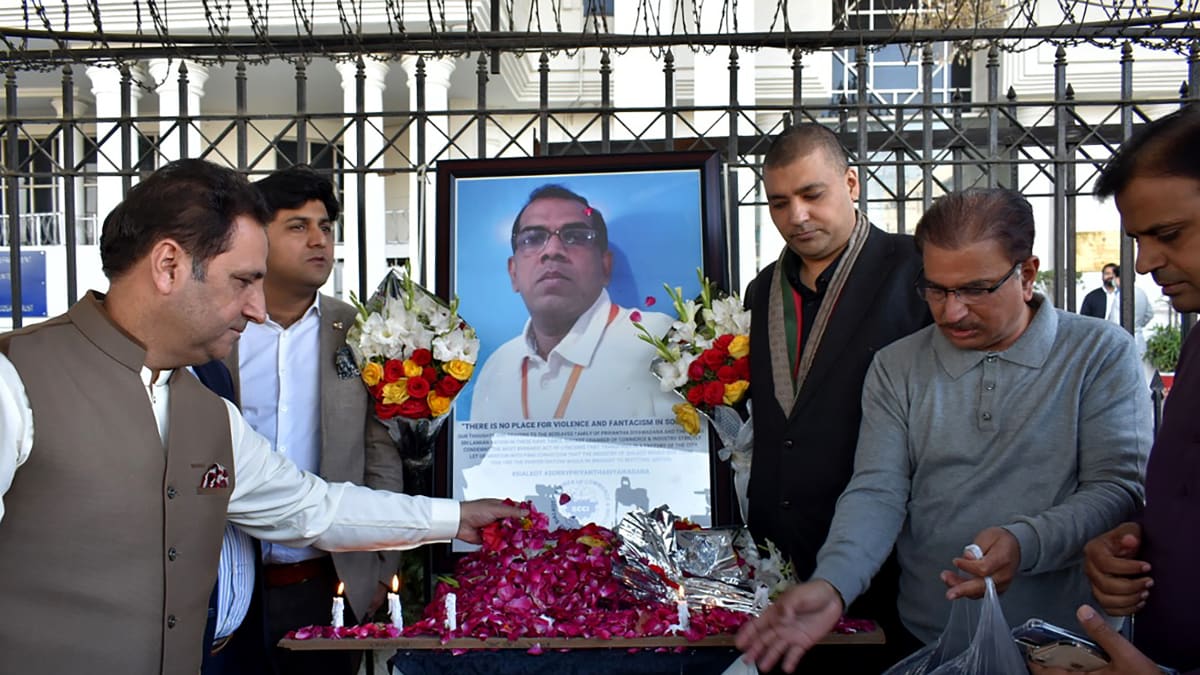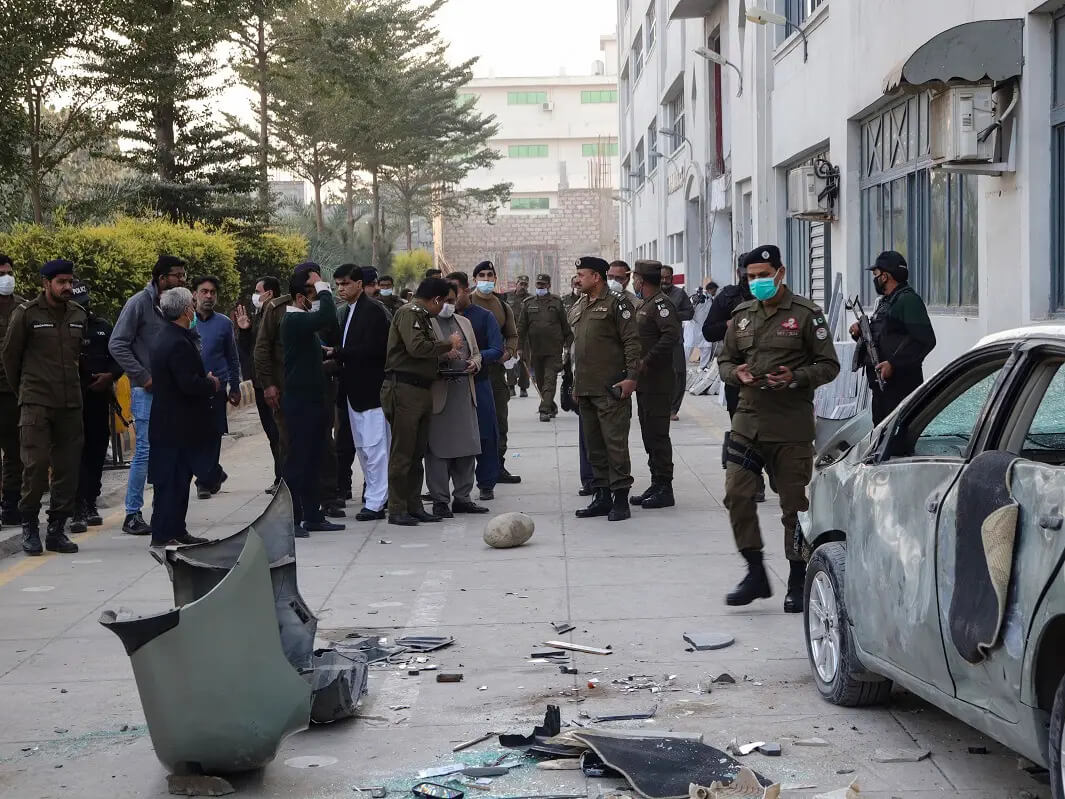On Sunday, Pakistani Prime Minister Imran Khan spoke with Sri Lankan President Gotabaya Rajapaksa to condemn the lynching of a Sri Lankan factory manager in the Sialkot district in eastern Pakistan on Friday. He vowed to take severe action against the perpetrators of the violent attack.
Spoke to Sri Lankan President Gotabaya Rajapaksa today in UAE to convey our nation's anger & shame to people of Sri Lanka at vigilante killing of Priyantha Diyawadana in Sialkot. I informed him 100+ ppl arrested & assured him they would be prosecuted with full severity of the law
— Imran Khan (@ImranKhanPTI) December 4, 2021
Priyantha Kumara Diyawadana, a Sri Lankan citizen, was attacked by angry supporters of the hardliner Tehreek-e-Labbaik Pakistan (TLP) at a garment factory where he served as a general manager. Reports suggest that he was tortured and lynched, and eventually set on fire.
The attack was allegedly instigated after Diyawadana tore and threw away a poster of the TLP that had Quranic verses on it. After factory workers saw him removing the poster, they spread the word in the factory, resulting in hundreds gathering outside the premises. However, according to human rights activist Mehnaz Rehman, the incident was spurred by a workplace disagreement and was justified under the pretext of blasphemy.

Speaking of the violent attack, Inspector General of Police (Punjab) Rao Sardar Ali Khan said: “A mob of over 800 men gathered at the factory at 10 am Friday on reports that Kumara had torn a sticker/poster (inscribed with Islamic verses) and committed blasphemy. They looked out for him and found him (from the rooftop). They dragged him, beat him severely and by 11.28 am, he was dead, and the body was set on fire by the violent mob.”
Following the incident, global rights group Amnesty International said it was “deeply alarmed” by the incident and urged Pakistani authorities to “conduct an independent, impartial and prompt investigation and hold the perpetrators accountable.” Meanwhile, outside the Pakistani High Commission in Colombo, several demonstrators, including a group of monks, gathered to protest against the incident.
Imran Khan responded by calling it a “horrific vigilante attack,” describing it as a “day of shame” for Pakistan. He vowed to hold those responsible accountable for their actions; in fact, around 120 people have already been arrested.
The horrific vigilante attack on factory in Sialkot & the burning alive of Sri Lankan manager is a day of shame for Pakistan. I am overseeing the investigations & let there be no mistake all those responsible will be punished with full severity of the law. Arrests are in progress
— Imran Khan (@ImranKhanPTI) December 3, 2021
A statement by the Pakistani President’s Office said that Khan had informed Rajapaksa that 113 people have already been arrested. Khan told Rajapaksa that “the Pakistani security forces have obtained all the videos and information related to the incident.” Khan also expressed his regard for Diyawadana, who worked in Pakistan for a long time, praising him for conducting himself with a high level of professionalism.
In response, Rajapaksa said that the “act of barbarism” had shocked the Sri Lankan people. He commended the actions taken by Pakistan and said he looked forward “with great confidence” to the future steps that Pakistani authorities will take.
The incident highlights Pakistan’s continued struggle with religious extremism, which many argue is legally protected. The country’s blasphemy law criminalises acts that disturb religious assemblies or distort religious places or objects. It also prohibits any statement that insults religious beliefs. A violation of blasphemy laws allows for a prison sentence of one to ten years. Furthermore, according to the law, any statement or action against Prophet Muhammad attracts a death sentence or a life sentence. International rights groups have criticised the laws for being disproportionately used against minorities or critics of religious institutions in Pakistan. At the same time, there are concerns that citizens are taking these laws into their own hands, as demonstrated by the incident in Sialkot.
This mob violence is facilitated in great part by the rise of right-wing extremist groups like the TLP. Last month, the Pakistani government removed its ban on the TLP and released its leader, succumbing to the pressure of days of continued protests by the group. With the legitimisation of the group, such acts of vigilantism are only likely to increase.

